

DBT Peer Connections: Episode 1d - Core Mindfulness Skills - by Rachel Gill. Why mirror neurons in your brain can make you feel. Stop Negative Thoughts From Getting You Down. “Did you bring a gun to shoot me today?”
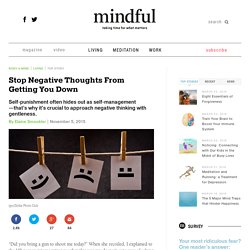
When she recoiled, I explained to the HR person interrogating me that this was my doctor’s cute way of asking if I was terminating therapy. I probably shouldn’t have mentioned it during a job interview, but my potential employer was asking me if I ever had a difficult encounter with a medical professional, and I blurted it out. Ruby Wax on Mindfulness. Andy Puddicombe: All it takes is 10 mindful minutes. Dr Judith Sunley - Life Coach. It sounds corny, but I have been so busy working on some new training material recently that I haven’t had the time to blog about it.
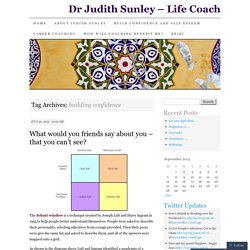
My last blog was about self esteem, and I’ve been working on skills and techniques to help people with reflecting on their thought processes, beliefs and “rules” that are limiting, and how to take those first uncertain steps to their new self confident future. You may be surprised to learn that the things that get in the way of building self confidence are often self-made. Steven Addis: A father-daughter bond, one photo at a time. Dealing with depression, Dr. Andrew Weil's first TV interview on his personal diagnosis. Dr. Andrew Weil on Mind-Body Health. How To Create a Sense of Purpose In Your Life. Did you inherit your sense of purpose from others?
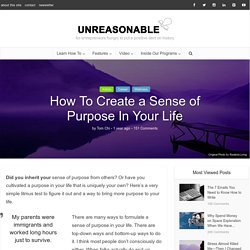
Carol Dweck: The Effect of Praise on Mindsets. Intentional learning - eLearning snippets. Intentional learning is the "persistent, continual process to acquire, understand, and use a variety of strategies to improve one's ability to attain and apply knowledge" (American Accounting Association, 1995).
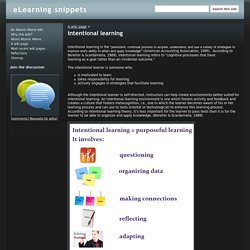
According to Bereiter & Scardamella, 1989), intentional learning refers to "cognitive processes that havelearning as a goal rather than an incidental outcome. " The intentional learner is someone who: is motivated to learntakes responsibility for learningactively engages in strategies that facilitate learning Although the intentional learner is self-directed, instructors can help create environments better suited for intentional learning.
Bubbl.us - brainstorm and mind map online. Instructional Design Fusions. Metacognition is an important part of intentional learning, since it involves actively thinking about what you know, what you don’t know, and how you can get better at knowing and applying what you know.
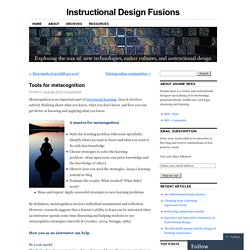
A mantra for metacognition. Tools for metacognition. Metacognition is an important part of intentional learning, since it involves actively thinking about what you know, what you don’t know, and how you can get better at knowing and applying what you know.
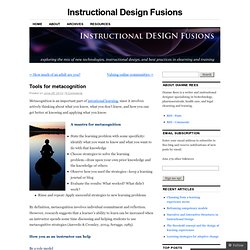
A mantra for metacognition State the learning problem with some specificity: identify what you want to know and what you want to do with that knowledgeChoose strategies to solve the learning problem—draw upon your own prior knowledge and the knowledge of othersObserve how you used the strategies—keep a learning journal or blogEvaluate the results: What worked?
What didn’t work? Rinse and repeat: Apply successful strategies to new learning problems By definition, metacognition involves individual commitment and reflection. Your Beliefs. Do you know what your beliefs are?
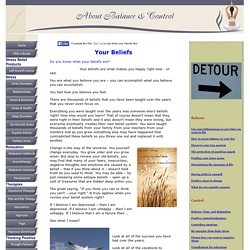
Your beliefs are what makes you happy right now - or sad. Nolwenn Leroy - Sixième Continent. Meditation for Beginners (video) Learn to meditate in 6 minutes with this video from ABC News anchor Dan Harris and meditation teacher Sharon Salzberg.
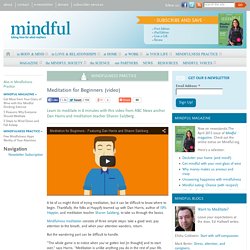
A lot of us might think of trying meditation, but it can be difficult to know where to begin. Thankfully, the folks at Happify teamed up with Dan Harris, author of 10% Happier, and meditation teacher Sharon Salzberg, to take us through the basics. Mindfulness meditation consists of three simple steps: take a good seat, pay attention to the breath, and when your attention wanders, return. Growth Mindset Video. BRAIN POWER: From Neurons to Networks. 5 Foolproof Ways to Feel More Joy in 2015. Christine Carter talks with James Baraz, author of Awakening Joy.
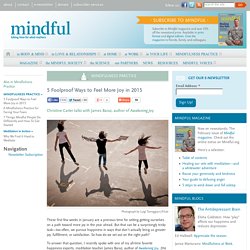
Photograph by Luigi Torreggiani/Flickr These first few weeks in January are a precious time for setting getting ourselves on a path toward more joy in the year ahead. But that can be a surprisingly tricky task—too often, we pursue happiness in ways that don’t actually bring us greater joy, fulfillment, or satisfaction. Jon Kabat-Zinn Video Series on Mindful.org. When he started MBSR, Jon Kabat-Zinn didn't have a detailed plan—just a passion and an inkling that lots of good would come of it.

Now, 36 years later, he talks with us about the present and future of mindfulness. In 1979, Jon Kabat-Zinn recruited chronically ill patients not responding well to traditional treatments to participate in his newly formed eight-week stress-reduction program, which we now call Mindfulness-Based Stress Reduction (MBSR). Since then, substantial research has mounted demonstrating how mindfulness-based interventions improve mental and physical health—comparably so to other psychological interventions.
Depression "Tweaks" Disappointment Circuit in Brain. "People with depression process information more negatively than healthy people. " Scientific American reports on new research exploring the brain circuitry underlying this imbalance. "An unusual chemical balancing act helps explain why people with depression attend more closely to negative information," Simon Makin writes in Scientific American's January 2015 issue. Researchers studied the lateral habenula, "an evolutionarily ancient region deep in the brain.
" Neurons in this region are activated by unexpected negative events—a reward is not granted, or unexpected punishment occurs. Researchers found that the balance of chemicals in this region controls the processing of negative events. Cognition Archives - Page 2 of 194. The SCIENCE. 5 Ways to Develop Kindness and Generosity.
By noting some simple everyday cues we can strengthen the muscle of kindness and generosity. 1. Pause at the stop sign Every time you come to a stop sign or a red light, take a full breath, notice how you are feeling and then wish yourself or another well. “May I be happy and safe. May I live with ease.” 2. When you shop at a grocery store, stand in line for a movie ticket, or get a tank of gas at a full-service station, engage with other people. On the Dangers of the Internet. Views: 4064 Over the past century, technologies have completely changed the way we connect with each other.
The benefits of the internet are obvious and all around us. Play, SoulPancake, and Building Your Anti-Depressant Brain. When it comes to happiness, says Elisha Goldstein, there's a simple but important tool we often forget about: play. For years now, I’ve been studying what helps create more resilience and happiness within us. I’ve looked at my own life, the life of my clients and students, and the psychological and neuroscience research. What I’ve found is that within each and every one of us are a core set of natural anti-depressants. When we intentionally tap into these resources, it shifts our brain activity in ways that can lend itself to shaping an anti-depressant brain.
One of the natural anti-depressants that I’ve come to find that helps break a bad mood and create positive neural activity is Play! 5 Steps to Winding Down and Falling Asleep. How to stop tossing and turning and get some quality shut-eye. Model Photo: Colourbox.com By Shelby Freedman Harris As someone who works every day with patients struggling with insomnia, the most common thing I hear is once the head hits the pillow, the brain doesn’t stop. They know sleep should come, but the brain just wants to think about both pressing and mundane things, such as reviewing the day’s events and tasks that need to be completed.
When we lose awareness of the present moment, our minds get stuck in maladaptive ways of thinking. Andy Puddicombe: All it takes is 10 mindful minutes. The School of Life. The Top Stories of 2014. Mindfulness Course. Mindfulness is an integrative, mind-body approach to life that helps people relate effectively to their experiences. It involves paying attention to thoughts, feelings and body sensations in a way that can increase our awareness, help us manage difficult experiences, and create space for wise choices. Though rooted in ancient traditions of meditation, mindfulness has become the subject of increasing scientific attention in recent years, as a rapidly-expanding body of research is suggesting it can help people manage a range of physical and mental health problems, as well as promoting well-being generally.
Research has consistently shown that programmes based on mindfulness (such as mindfulness-based stress reduction, and mindfulness-bsed cognitive therapy) can help people reduce their levels of stress, and mindfulness skills are now being used in medicine and mental health as well as in workplaces, schools and other community settings. What is mindfulness-based stress reduction?
Change Your Thoughts, Change Your Circumstances! (Law Of Attraction) Powerful! 16 Habits of Exuberant Human Beings. Thoughts Are Not Facts. Next time your mind jumps to a conclusion that inevitably sends in you in a spiral toward depression or anxiety, check to see where your head was at the time of that interpretation. Click the infographic to enlarge it or click here. How to Be Alone, Mindfully (video) Your brain needs downtime. Hacking Mindfulness: Learning to Pay Attention to Your Own Attention, with Peter Baumann. Business-chart-1200.png (PNG Image, 924 × 1200 pixels) - Scaled (83%)